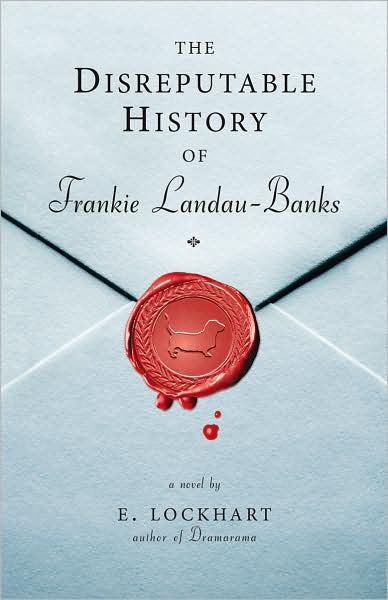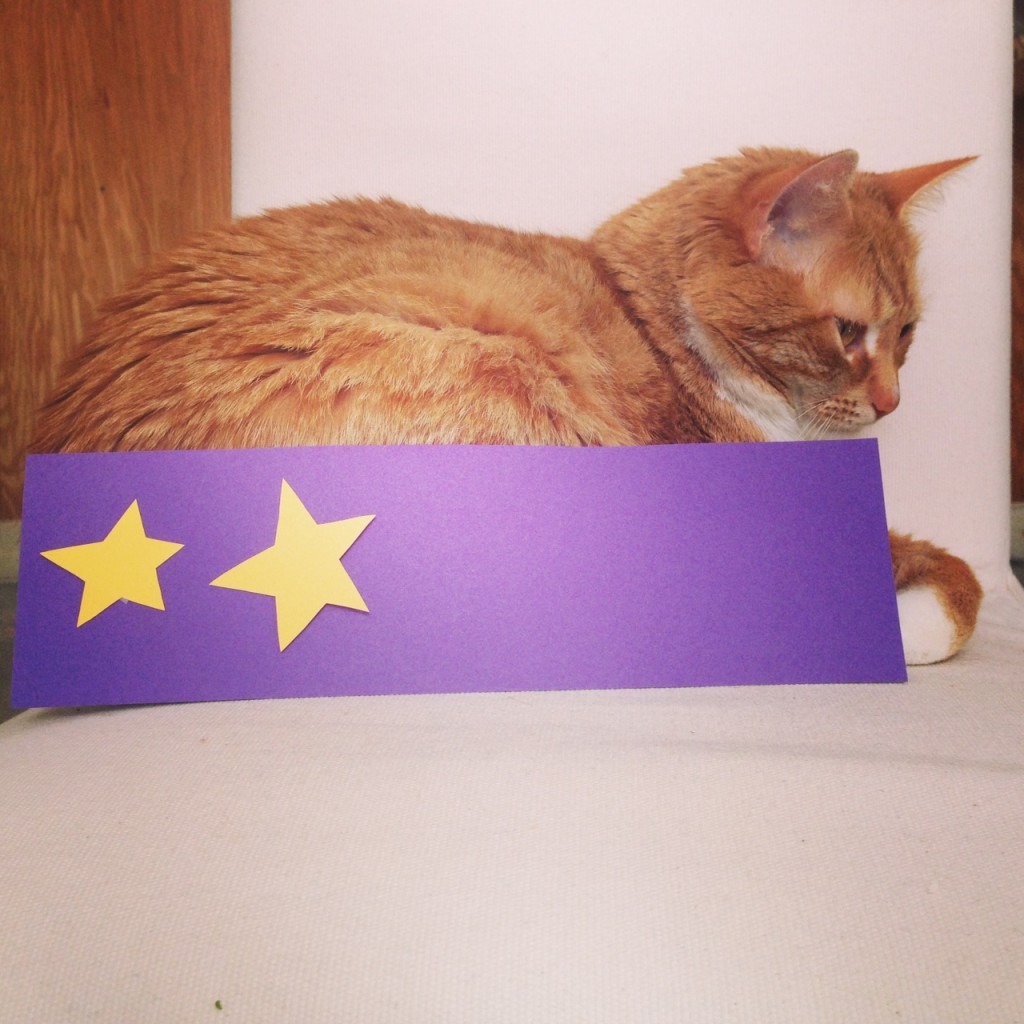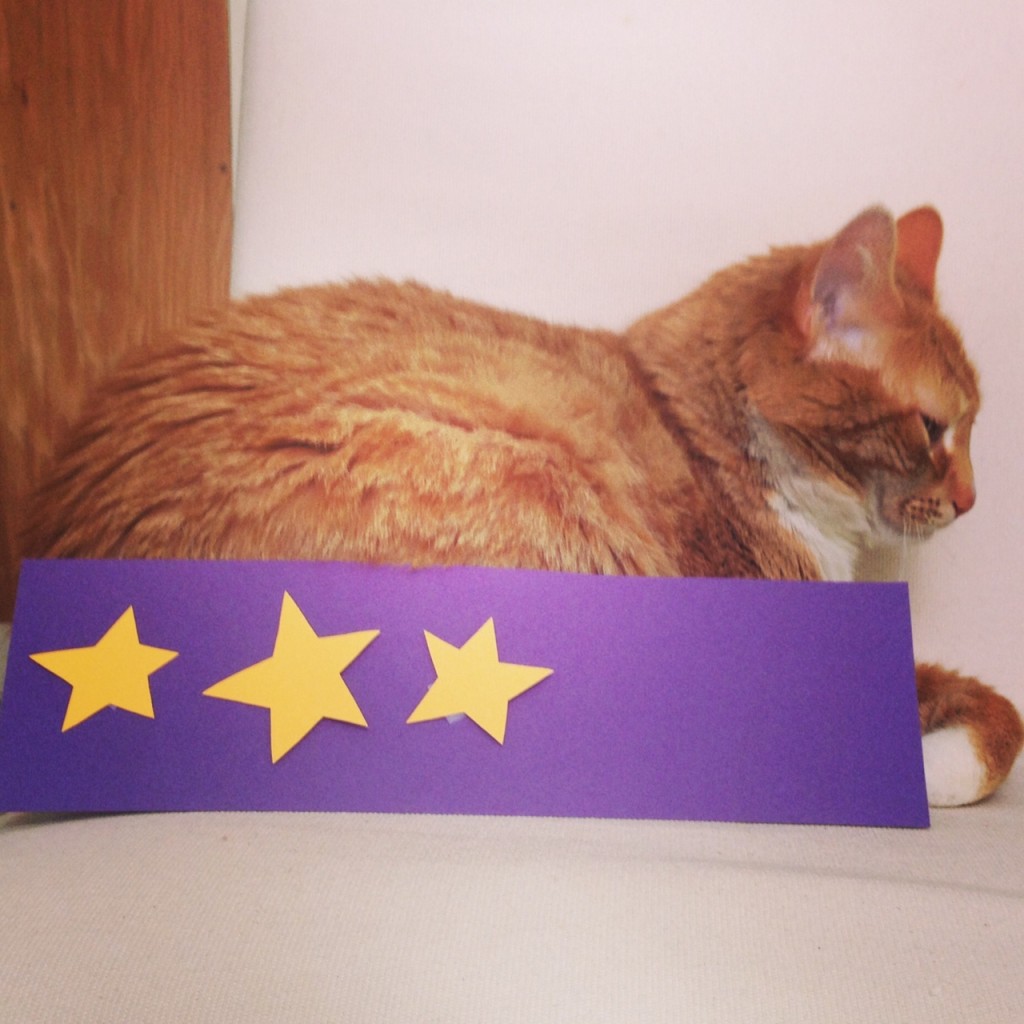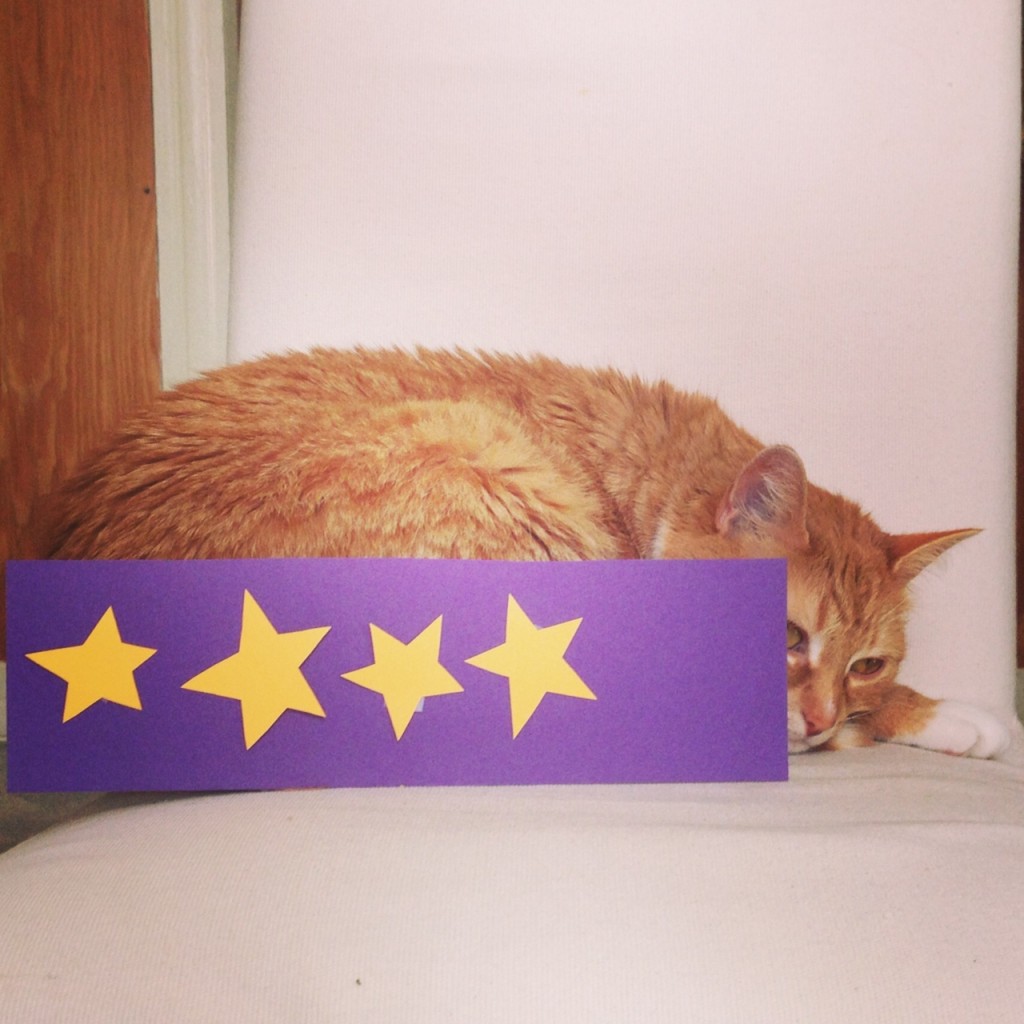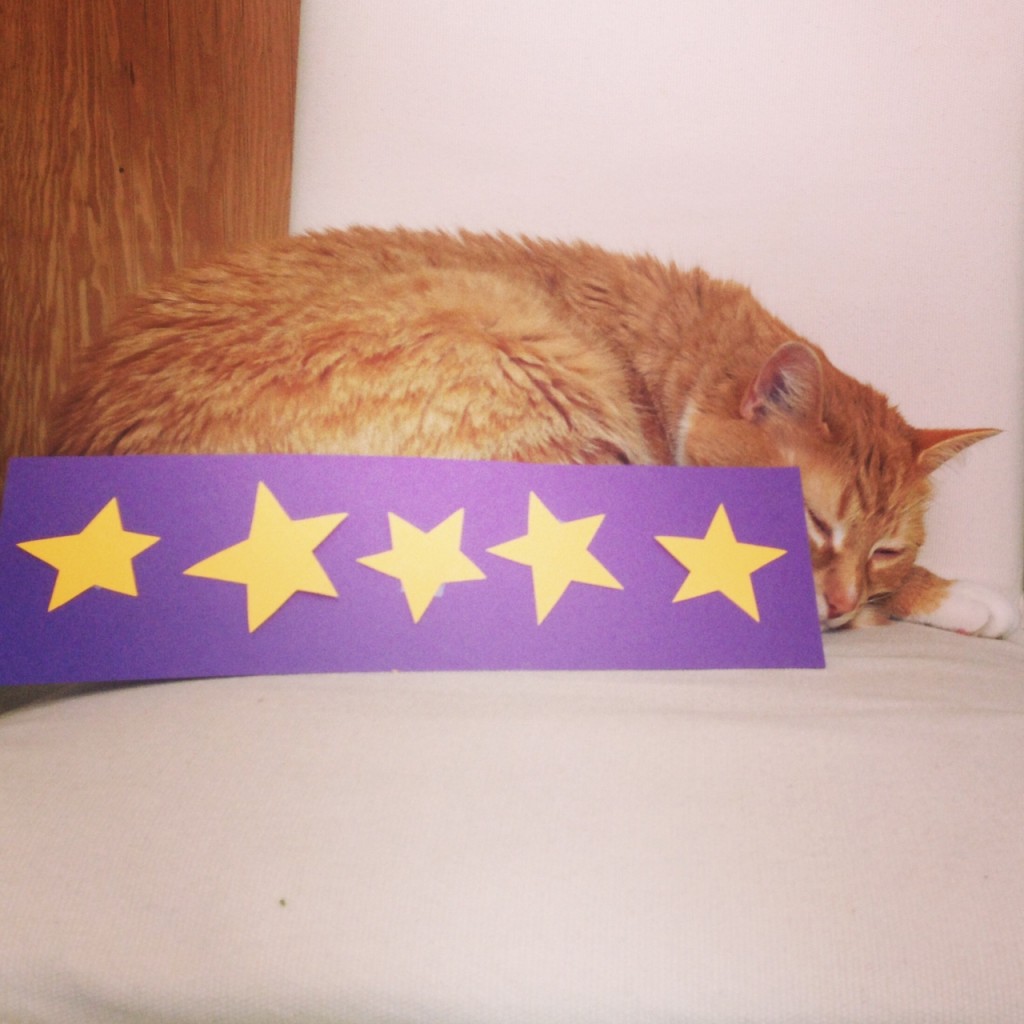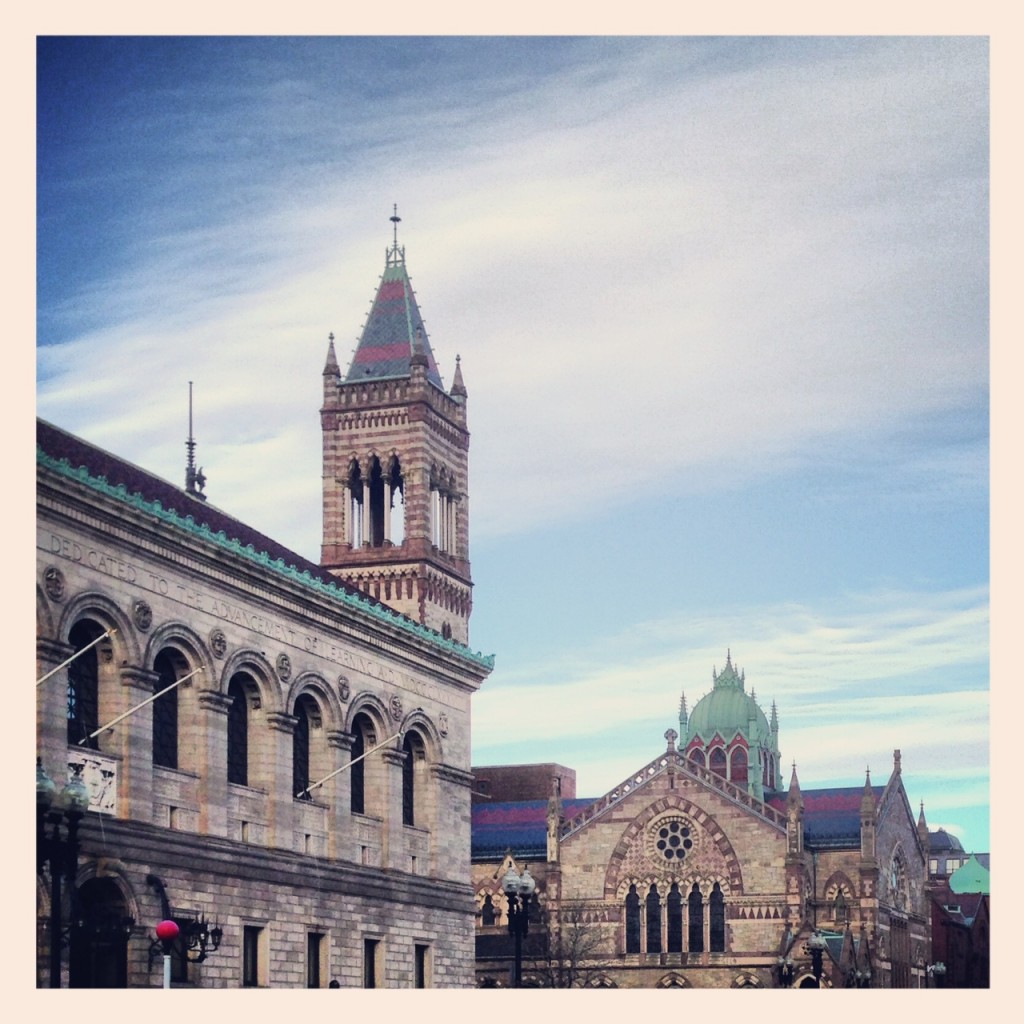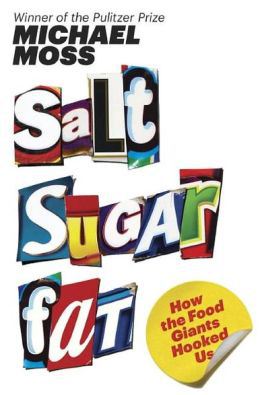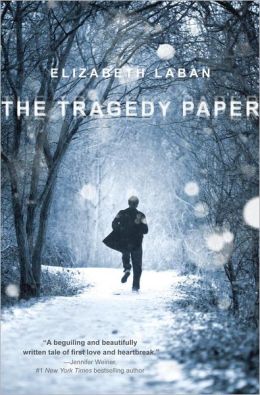
I am concerned that I am becoming a reading cynic.
But not that concerned. I think if you like every book you read, then you are probably just really good at picking books to match your tastes. I think it’s okay to acknowledge that although I love books, and YA and children’s books especially, and although I will champion reading whatever you want, whyever you want, whenever you want, whoever you are… there are still books out there that just are not contributing to the field. And it’s okay to talk about why not.
I am off to a bad start, because I am not saying that The Tragedy Paper is one of those books at all! Oh, I start book reviews like this all the time. It’s misleading and awful. I apologize. Stay with me…
It took me three years of grad classes to feel confident enough in my tastes and perceptions to talk about why I didn’t like books, and more importantly, what part of the literature stemmed these negative feelings. It took me about two classes of grad school to see that some people seem to enjoy stampeding into a book with the force of all their pet peeves and then get a look of joyous self-satisfaction when they point out every last nitpicky detail that caused them to hate this book.
Those are the people I don’t want to be.
There is a difference between stating personal preference and forming a critical argument. It’s sometimes not easy to spot in a review, and definitely not easy to prevent when you are reading on your own and writing reviews and otherwise expressing your thoughts about a personal reading experience in a way that will be valuable to other readers.
So. The Tragedy Paper. This is a fairly traditional boarding school story. Think A Separate Peace as your classic touchstone, Looking for Alaska as your contemporary update, and then the rest of the boarding-school-lit field: I’ve read Marianna Baer’s Frost and Jenny Hubbard’s Paper Covers Rock in the past few years, but heck, you could think about Harry Potter, too. All of these books follow a rough pattern: student leaves home, enters a school with a distinct culture – academics, socializing, and other activities are built into the school experience and are often given the heavy weight of ritual or tradition – student is challenged to manage his or her own life without parental control, and then a tragedy occurs, putting it all to the test.
The Tragedy Paper fits neatly into this pattern. Enrolling at Irving School as a second-semester senior, Tim Macbeth flies across the country alone to begin school while his parents are out of the country. A snowstorm grounds him in a Chicago airport and he has a chance encounter with Vanessa, a pretty, popular senior who seems to like him despite the fact that Tim has albinism. When they both arrive at Irving, Tim must adapt to the academic and social culture, manage the health issues that surround his condition without adult oversight, and contend with Vanessa’s boyfriend who is sometimes suspicious and sometimes nice and sometimes just a cog in the bro-y old boy’s club kind of tradition that permeates Irving like any good patriarchal boarding school. (Sorry, blame Frankie)
A tragedy occurs. Of course. It’s called The Tragedy Paper. Laban does ramp up the tension as she moves closer toward the event, and despite the clear fact that something bad is going to happen, I was still completely in the dark of what it would be. From the eyes of Tim, boarding school is a good experience: the traditions give him a sense of belonging, Vanessa makes him feel attractive and confident, and he’s making friends. But Laban injects this sense of maliciousness just beneath the surface. Tim is an albino. An outsider. He is making a play for a popular girl. He will be punished for upsetting the social order. This growing terror feels a little reminiscent of The Chocolate War, and the ending was both shocking and satisfyingly complex.
But is The Tragedy Paper contributing to the field of contemporary YA lit? Is it a good example of a boarding school story? Does it do the genre right?
That I am not sure about, for a reason that is a mix of my own personal preference, my experience reading contemporary YA realism, and what I think are legitimate literary concerns. I am not sure I can separate them, hence the diatribe above.
My major issue is that I think this book seemed too self-aware. That is best way I can put it, even though books are not conscious entities. What I mean by this is that reading The Tragedy Paper it seems that the author knows she is writing A Boarding School Story that will end in tragedy. It’s called The Tragedy Paper for goodness sake. Everything feels a little too neat. In every other chapter, we are reminded of the wonderful, local, organic food served in the cafeteria, in case we forgot that Irving is a Special Place where kids get to eat Special Food.
The book’s marketing doesn’t help the situation. Laban’s author bio gets a giant picture and a brief bio stating that she wrote her own Tragedy Paper in high school. I am assuming this is supposed to lend credibility and interest to the story – the author knows, so we can trust her depictions – but I interpret that move as a way to bolster the book’s faults. If the plot seems unbelievable at times, the narrators too precocious, the whole book too “self-aware” that’s because Laban knows better than we do and we should just roll with it. The author interview immediately following the book cemented my feelings – I don’t even remember the contents of said interview, but the fact that it is assumed that I give a rip about a debut author’s privileged high school years at a prestigious boarding school feels a little off. Like the story just can’t stand on its own.
And speaking of stories standing on their own, this brings me to my major concern with Laban’s craft: the entire story is written through the eyes of another character – Duncan – who is a senior the year after Tim has graduated. Duncan lives in Tim’s old room, and in the auspice of Irving tradition, Tim leaves Duncan a gift: a stack of CDs, an audio recording of Tim telling his story, his tragedy. It’s a framing device, but it’s a clunky one. Duncan has little personality, he doesn’t do much except race back to his dorm room to listen to more of Tim’s story and hook up with a nice girl named Daisy. This is not Duncan’s story – it’s Tim’s. Again, I feel like a strong story, a stronger writer, could let Tim’s story stand on it’s own.
There could be an argument that Laban expands the literary field by exploring the life experience of teens with albinism. I did find her treatment of Tim’s condition to be nuanced, interesting, and definitely not a story that I’ve heard before in fiction, much less boarding school YA lit. However, Tim’s condition seems to fit so nicely into the pattern of a boarding school story – and is so essential to the tragedy’s ending – that it seems an almost exploitative choice, a physical representation of Tim’s internal other-ness that makes me a little uncomfortable. There were some comments in the author’s interview that reinforced my feelings, which didn’t help.
So what’s the verdict? I would say a good read that satisfies the conditions of the boarding school story and presents some interesting characters and dilemmas, but lacking in significant literary merit, perhaps masked in hyped-up publicity. Or, it’s just a good book and I am a cynic who is overly sensitive to reading about delicious grass-fed burgers and plot-development based on people vomiting (I didn’t mention that because I just can’t, but it happens more than once). But it was definitely thought-provoking, both the actual content of the book and thinking about how it fits into the field afterwards to write this post. I’m interested to see what Laban will try next, either way.





